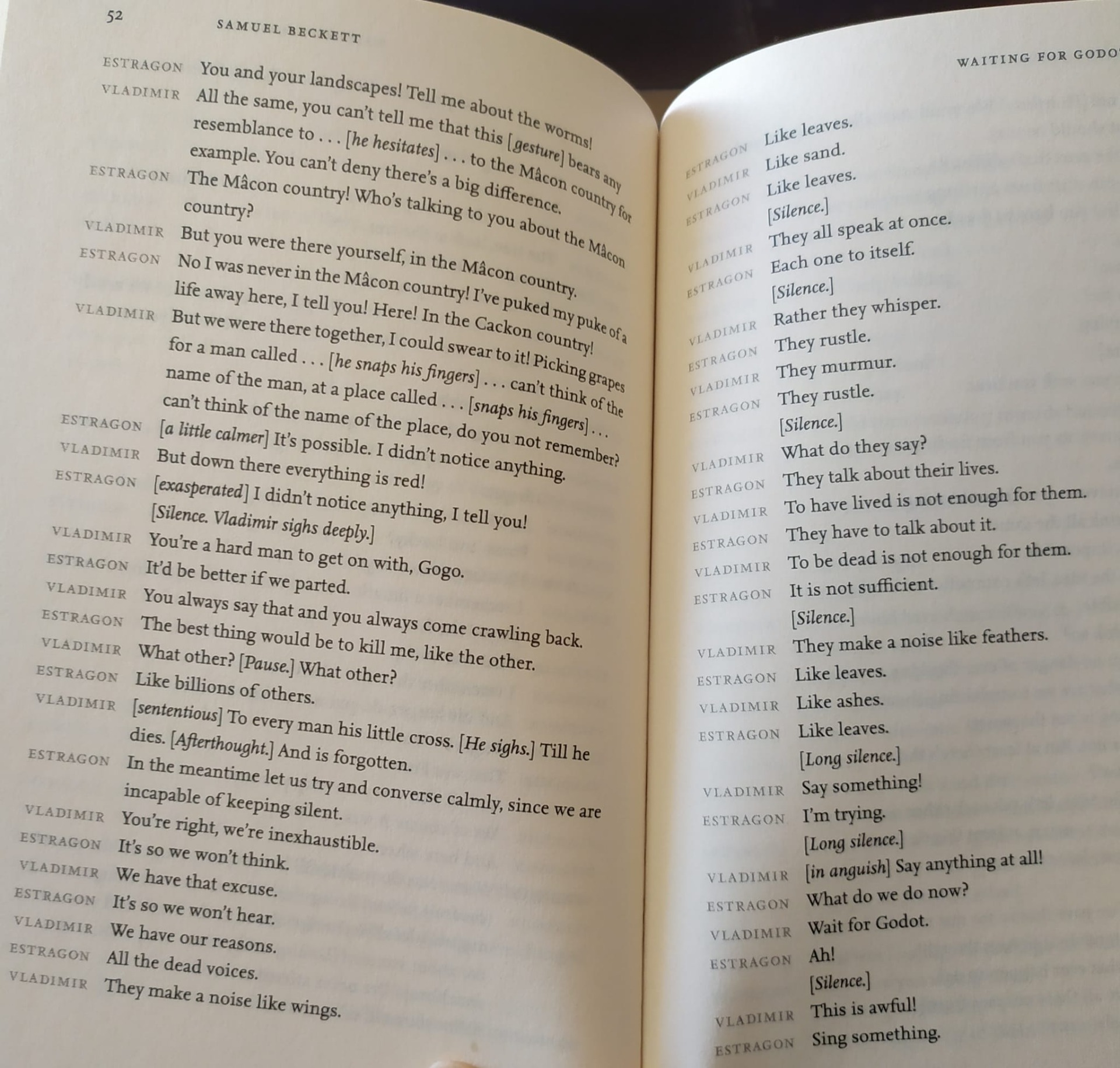
Samuel Beckett's Waiting for Godot
What you will read is an extract from Waiting for Godot by Samuel Beckett.

Beckett's play was written just a few years after the end of the Second World War and its main characters are two homeless tramps, Vladimir and Estragon.
In the first scene of the play they are waiting at the side of the road for Godot to arrive. Godot will be their saviour, but Godot never shows up. Although nothing seems to happen in the play, actually it is in the nothingness that so much happens. The frustrating and futile waiting is what mostly emphasizes the main theme of communication, or rather the lack of communication.
As a matter of fact, the communication between Vladimir and Estragon is characterized by constant misunderstandings, the inability of the characters to remember, Lucky's monologue with repetitive words and no punctuation marks as well as the telegraphic writing style.
These features are inserted to transmit how the devastating Second World War left many people desperate and disillusioned with life. In so changeable a world, it is difficult to express meaning or to talk as one used to do before the advent of both First and Second World War.